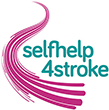How long do I need to keep taking my medicines?
Many of the medicines that you have been prescribed after your stroke will be treatments you take for the rest of your life. If you have any problems or concerns about your medication, you should talk with your GP or pharmacist.
What should I do if I experience side effects?
Medicines work in a delicate balance with your body and with each other. Sometimes the balance tips, and this can cause side effects or medicine interactions.
All medicines have side effects. But many people don’t feel the side effects, or they don’t interfere with daily life.
Side effects may go away after you take the medicine for a while.
If side effects continue to bother you, call your GP. He or she may be able to lower your dose, or change your medicine. Do not stop taking your medicine suddenly, unless your doctor tells you to.
What if I have an urgent problem with my medicines?
If you, or somebody else, notice one of the things on this list, don’t delay -talk to a doctor or pharmacist
straight away.
straight away.
- If you have taken too much of any medicine
- If you have an allergic reaction to a new medicine
(such as wheezing, rash, swelling or fainting) - If you notice a serious side effect or any unusual
symptoms - If you notice your health getting worse.
In any of these cases, talk to a doctor or pharmacist straight away.
What if I have difficulty swallowing my tablets?
There are alternatives to some medicines; you might be able to take a liquid instead of a tablet.
Ask your GP or pharmacist about what is available.
It is not easy to use my medicines since my stroke, what are the options?
Most pharmacists can supply easy-to-open containers for tablets and liquids. There are easy-to-use eye drop dispensers and inhalers. Ask your pharmacist what is available.
More information
References from:
- How long do I need to keep taking my medicines? – Scottish Intercollegiate Guidelines Network (SIGN) 108, patient booklet [.pdf]
- What should I do if I experience side effects? – e medicine health – Dealing With Medicine Side Effects and Interactions
- What if I have an urgent problem with my medicines? – Medicines and Healthcare Products Regulatory Agency (MHRA) – NHS – Medicines use review: Understand your medicines [.pdf]
- Multimodal Secondary Prevention Behavioral Interventions for TIA and Stroke: A Systematic Review and Meta-Analysis (2015) [.pdf, 3 MB] Lawrence M, Pringle J, Kerr S, Booth J, Govan L, et al. (2015) Multimodal Secondary Prevention Behavioral Interventions for TIA and Stroke: A Systematic Review and Meta-Analysis. PLoS ONE 10(3): e0120902



